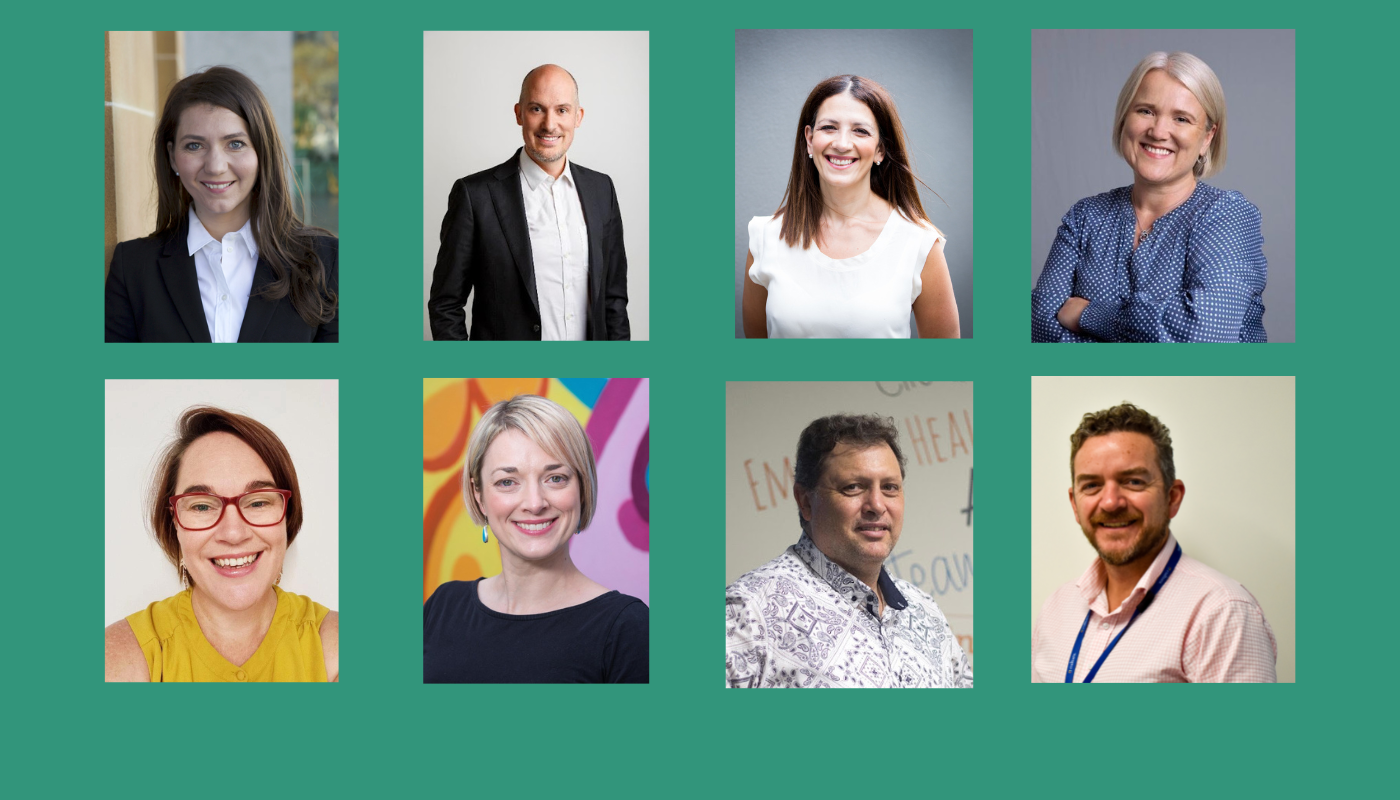AHRI’s State Presidents outline some of the challenges HR professionals are experiencing in their states and territories, and share their thoughts on how the people profession can prepare for the future.
Earlier this month, HRM sat down with AHRI’s State Presidents for a virtual roundtable to talk about the current challenges HR professionals are facing in Australia, as well as what the future could hold for the profession.
Below, HRM has shared their video responses, along with key timestamps so you can skip to the section that interests you most.
1. Meet AHRI’s State Presidents
In order from top left – Freya Beech MAHRI, TAS President; Jonathon Woolfrey FCPHR, WA President; Athena Chintis CPHR, NSW President;Steph Waddon FCPHR, ACT President; Renee Alexander MAHRI, NT President; Susan Sadler CPHR, South Australian President; Rod Francisco FCPHR, QLD President; and Matt Connell FCPHR, VIC President.

2. What challenges are HR professionals in your state or territory facing?
10 seconds: Alexander talks about the need for Northern Territory employers to keep pace with the changes that Victoria and New South Wales are spearheading after months of working in lockdown.
58 seconds: Francisco talks about the challenge of people moving to Queensland to live, but not necessarily working for Queensland-based companies.
1:38 minutes: Chintis says the labour market shortages and a lack of real wages growth are causing issues in New South Wales.
2:20 minutes: Connell says high absenteeism rates are currently pulling focus for Victorian HR professionals and employers.
“We’re not just about people and process. We’re about business and how to leverage the business… to get the best possible outcomes.” – Renee Alexander
3:30 minutes: Woolfrey says finding and retaining talent in Western Australia, as well as the record-high demands on HR professionals, are both key issues.
4:41 minutes: Waddon says ACT-based HR practitioners are focused on how to prepare for the future of work in a public sector context.
7:19 minutes: Sadler says South Australian HR practitioners are still focused on managing the transition back to the office environment.
7:53 minutes: Beech says there aren’t enough qualified people to fill positions in Tasmania right now.
3. What does the future hold for the HR profession?
1:40 minutes: Francisco says the AHRI certification process is only going to become more important over the upcoming years, as organisations will want HR to prove that they’ve been tested against a best-practice model, in the same way that CPA-qualified accountants are.
2:16 minutes: Chintis doesn’t think HR should get bogged down in risk mitigation. Instead, she thinks it should focus on creating cultures of trust.
4:20 minutes: Connell says HR will continue to focus on leadership development, training in critical areas such as emotional intelligence and why staff engagement matters.
4:40 minutes: Woolfrey says HR will evolve into expert problem solvers.
5:19: minutes: He adds it’s also important that HR continue to develop broad generalist skills.
5:35 minutes: Waddon says HR needs to wholeheartedly embrace technology instead of it being solely driven by the IT foundation.
“I think there is a deep requirement for specialist expertise… especially around education, skills and training because some of the emergent issues at a national level require quite different ways of building skills and competencies.” – Steph Waddon FCPHR
6:35 minutes: Waddon adds that while there’s a requirement to have a generalist knowledge base as your foundation, the specialist role is only going to get more critical in our complex business environment.
7:40 minutes: Sadler says the HR function will become more litigious and that all HR professionals will be expected to have a general understanding of employment law.
8:48 minutes: Beech believes the function will need to continue to learn how to be agile in order to properly align with business’s objectives.
4. What should HR professionals do to prepare for the future?
30 seconds: The professionalisation of HR will be critical, says Alexander. HR need to quickly leverage the influence that was gained during the pandemic, she adds.
1:20 minutes: Francisco says that by doing the work to professionalise the industry, HR will no longer be treated as an afterthought.
1:58 minutes: Chintis encourages HR professionals to stay across what’s happening outside of your own industry and stay up to date with research to help to form credible arguments when pitching business cases.
2:33 minutes: Connell says HR should think beyond their remit to add further value to the business.
3:09 minutes: Woolfrey says it’s critical that HR understands its business’s goals and pain points.
4 minutes: Waddon says leaders need to provide people with opportunities to build new skills and move beyond tactical work into more adaptive and strategic work.
5:19 minutes: Curiosity is a key HR skill, says Sadler. You don’t need to know everything, you just need to know how to ask the right questions.
5:58 minutes: Beech says HR need to upskill in analytics in order to understand where to focus your efforts.
What do you think the future of HR looks like? Share your thoughts with your peers over at the AHRI LinkedIn Lounge, exclusive to AHRI members.

